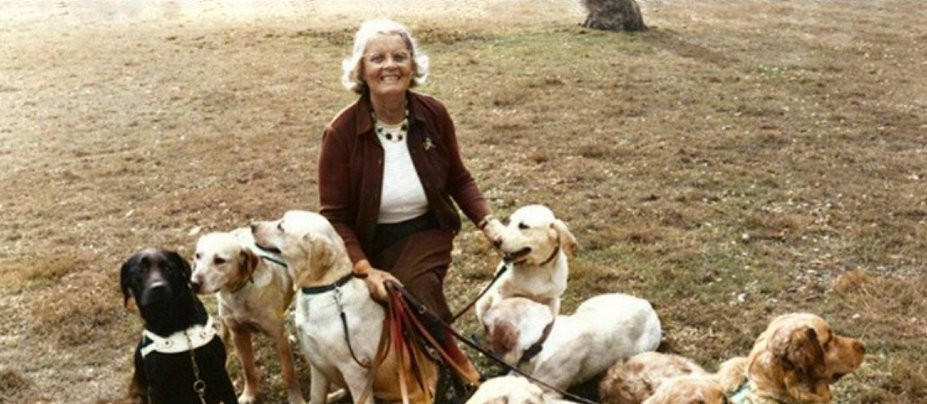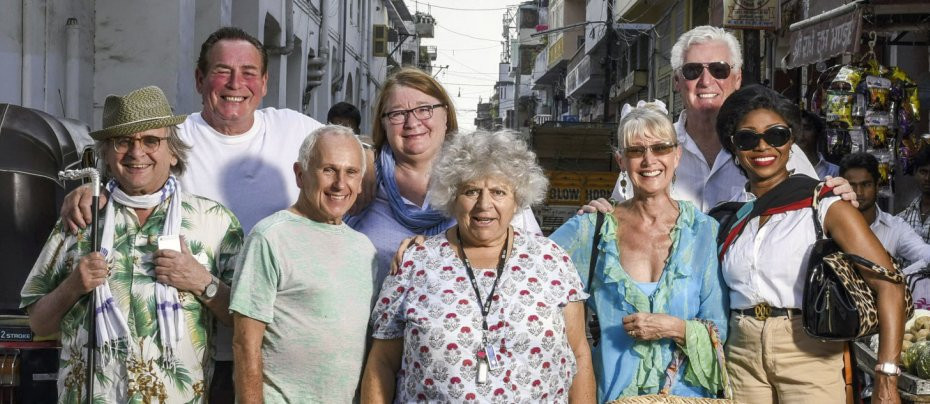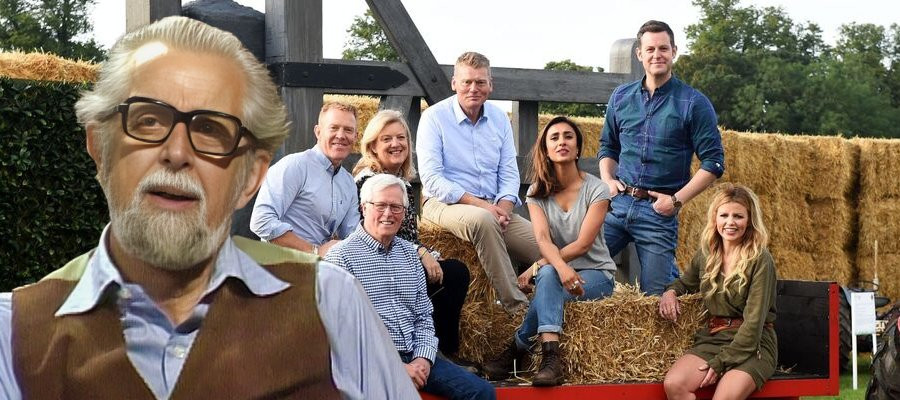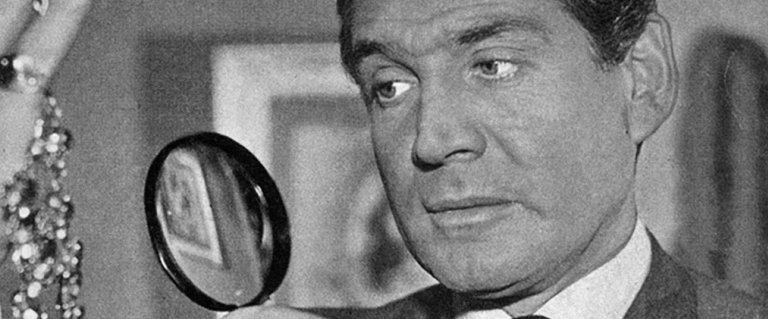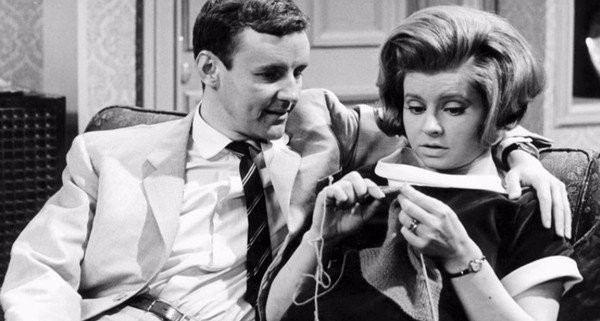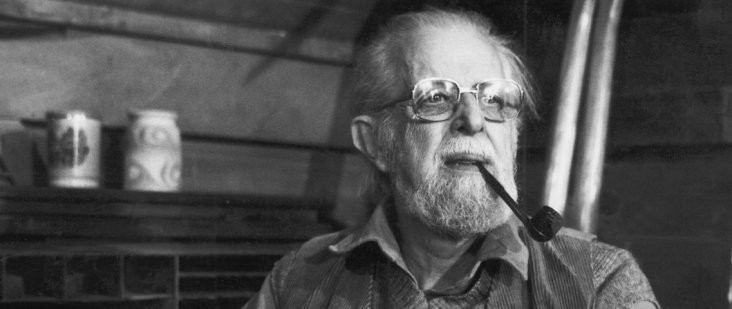
Out of Town
1963 - United KingdomOut of Town was a hugely successful series from Southern Television that ran for twenty-five years, each episode presented by Jack Hargreaves who, with his relaxed and amiable style, offered viewers a fascinating insight into the ways of rural life of years gone by, as well as the dwindling traditions and values of the people who inhabited a world devoid of technology and who quite gratefully distanced themselves from the rat-race of modern life.
Hargreaves effortlessly managed to cross the generation gap and, like a kindly, worldly wise grandfather, imparted his knowledge of country life and times gone by. And he was well equipped to do so, as he explained in the introduction to his 1987 biography 'Out of Town - A Life Relived on Television'.
'Up to the age of seventeen I went to a market every Wednesday at six miles an hour behind a grey pony called Quicksilver. At twenty-three I sailed to America in five days on the Aquitania to take part in a programme called The March of Time. At forty-four I had lunch in London, mounted a jumbo jet and, gaining five hours across the Atlantic, attended a meeting on Madison Avenue the same afternoon.
I listened with earphones to Big Ben chiming midnight on 31st December 1921: it was 2LO, the first station of the British Broadcasting Company.
I was still a man in his prime when we watched the astronauts on the moon.
As an army cadet I learned to shoot a single-shot Lee Enfield; and I was blown up in Antwerp by a V2 - the first rocket weapon-in a war it now dates me to mention.
At twenty-two I was associated with my first broadcast programme, a sound radio entertainment for which there came up from Mr. Chochrane's show at the palace a pretty girl in an ermine wrap called Jessie Matthews.
At Forty-eight I was asked to do a few television programmes about the old agrarian life.
I had little hope for them because I believed people had become uninterested in the past. Anyway, the past crept up closer behind us. In 1986 the BBC, celebrating one of its customary anniversaries, put on a programme which was billed as a 'period gem'. It was made in 1965.
However, to my unending surprise, the Out of Town programmes went on for twenty five years. I received and answered thousands of letters and met many more thousands of people, young, middle-aged and elderly.
I learned that most of them in all generations think that something has gone seriously wrong with the world but can't work out what. And I learned that for many of them the life I lived while I was growing up has become a desirable dream.
This book - like my programmes - is concerned with those times; with the feeling of the old, small-farming life and the know-how of it.'
Jack Hargreaves was born in north London on the very last day of the year 1911, to James and Ada Hargreaves. Jack (christened John Herbert) was one of three brothers. The family was actually rooted in Huddersfield in the West Riding of Yorkshire, but in his youth Jack was placed by his mother with old family friends at Burston Hill Farm north of Aylesbury in Buckinghamshire. Later, Jack went to study at the Royal Veterinary College at London University, but left to earn a living as a copywriter, journalist and script writer for radio and films. By the late thirties he had established a reputation for his pioneering approaches to radio broadcasting.
When Britain was plunged into war in September 1939, it was quickly recognised that broadcasting would become an important part of the war effort and Jack's talents in this field meant he would most likely be recruited by radio. However, he wanted to serve his country in active service and quickly joined the Royal Artillery as a private. He worked his way up the ranks to an NCO and entered the Royal Military Academy Sandhurst and was then commissioned into the Royal Tank Regiment. He could not though escape his reputation as a communicator and was recruited to the staff of General Montgomery to help setting up broadcasting services to allied forces before and after D-Day. He left the army in 1945 as a major, having briefly held acting rank of lieutenant-colonel.
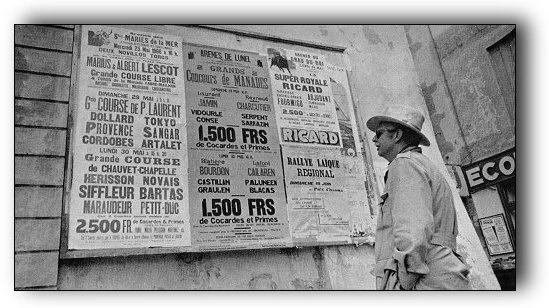
After the war, Jack returned to the media and during the 1950s became editor of the magazines Lilliput and Picture Post. His brilliance as a communications manager led to him being recruited to the National Farmers Union by Jim Turner, later Lord Netherthorpe. Working closely with Turner, Jack organised and developed the NFU's Information Department, founding the 'British Farmer' magazine during a crisis of trust between NFU HQ and the members of the largest union in the country, many of whom were experiencing what they saw as a catastrophic change in the agricultural economy.
In 1959, as representative of the NFU, Jack was sent to Southern Television to talk to their top man Roy Rich following an inaccurate TV programme on meat marketing, that had incensed the union. From that, Southern Television began a series called Farm in the South. Rich was so impressed with Jack that he immediately offered him the post of programme maker and assistant programme controller, which Jack accepted.
Roy Rich was talking to Jack one day when he said that he'd heard Jack was a bit of a fisherman, and would he take a cameraman and catch a fish for them live on air? Jack agreed and they set up a large Outside Broadcast Unit and Jack duly obliged in landing one. However, he did have some reservations prior to going before the camera. Sitting in the studio, apprehensive at the thought of talking live to a potential audience of millions, his director had reminded him that although the vast audience might be statistically daunting, it was more likely to be two or three people and perhaps a dog sitting in their front room. He advised Jack to aim his conversation at such an audience, and Jack immediately slipped into the relaxed conversational style that would become his trademark for the rest of his career.
Once again Rich was impressed and offered Jack the chance to do another show like the last one. Allegedly, Jack replied "I'll do six, for a lark!" and Rich said "okay." Those six shows went out under the title Gone Fishing. The signature tune to Gone Fishing was sung by Bing Crosby and Louis Armstrong. The film cameraman on the series was George Pellet and in the end, twenty eight editions were made.
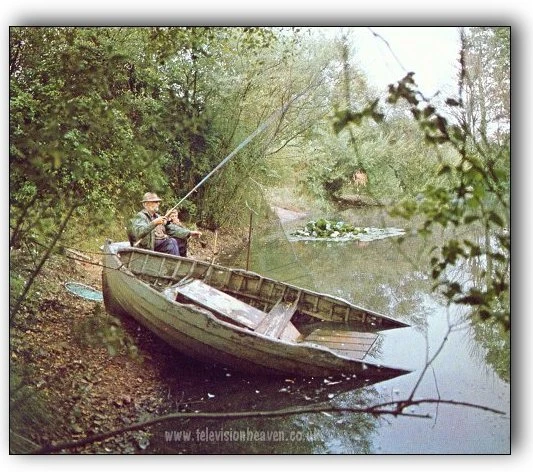
Gone Fishing led Jack straight into Out of Town which began in 1963. George Pellet decided to move on and was replaced by Stan Bréhaut who Jack regarded as "the finest outdoor cameraman in England". Shortly before his death in 2005, Bréhaut recalled his working relationship (one that lasted almost twenty years) with Jack: "George Egan came out on the early filming but soon left it to Jack and I. Even just we two were really two too many to be around when hoping to film wildlife. Over the years we learned to cope. Jack used my ignorance of the subjects to the programme's advantage. He reckoned that I was Mr Average Viewer and if he failed to recognise anything then I should film it, because although he might find it commonplace, if it interested me then it was worth a place in the programme. That saved a lot of movement and chat and we became a very quiet twosome. I remember Jack being disgusted when I was talking to someone about 'those little furry things we filmed last week', which were in fact some of the rarest creatures in the country!"
One of the earliest Out of Town series, documented the invention, design and construction, by Jack's friend Denys Rayner, of a family yacht - the Beacon Corvette - which evolved into Rayner's Westerly 22 and became among the first of a new family of small affordable sailing boats capable of being trailed behind a family saloon, easily launched and used for weekending as well as ocean voyaging. Jack and his last wife Isobel, who he married in 1964, took one of these - 'Young Tiger' (named after another of his TV series) - through the Canal du Midi between Bordeaux and Sète in 1965. The camera followed Jack on his travels, taking the series a little further out of town than normal. But the series was an instant hit as viewers tuned in each week to to get a taste of rural life and a quickly disappearing world. By the late 1970s the English countryside had lost an area twice the size of Berkshire to urban development. "The only way to save the countryside", said Jack "is to show people exactly what happens in it."
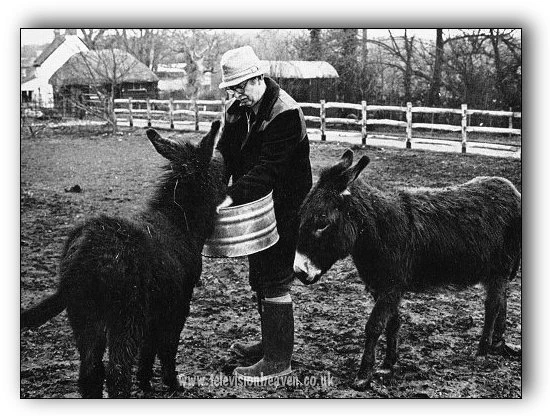
An article in 'Television and Radio 1978', informed viewers that 'whether it shows the shoeing of horses, angling or rabbiting, Out of Town presents a complete and unsentimental picture of country life in all its aspects. It is not a programme solely about fishing, nature or gardening, but all of these things as they effect the countryman; if it is interesting and part of country life it will be in the programme.' The link between the town, the country and the programme and its audience was not just one way communication and Jack would often turn up old rural implements that would baffle even the experts. Each week, TVS' postbag would be full of viewers letters recognising the flat tyned fork used for turning clay in the vale of Evesham, or the measuring device used by excisemen to find out how much beer was in a barrel, or the whereabouts of a type of squirrel. And the show received international recognition including the first ever prize in the cultural category of the World Newsfilm Awards, whilst at home, Jack received a 1972 silver award from the Royal Television Society for outstanding creative achievement in television in front of the camera, and later still a royal OBE from the Queen.
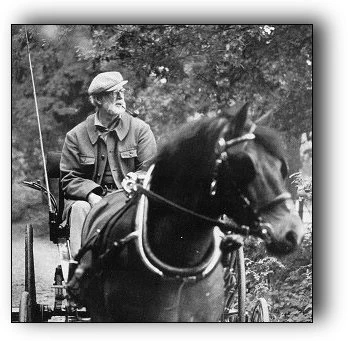
Jack Hargreaves became a household name in England during the 1960s and 70s. He devised and co-presented the long running How! a children’s programme about how things worked, shown from 1966 on Southern Television and networked on ITV until 1981 when Southern Television lost its franchise. His country TV programmes continued in the 1980s with Country Boy and Old Country for Channel 4. Jack Hargreaves passed away on 15 March 1994.
Out of Town was originally introduced by the Max Bygraves song 'Out of Town' taken from the 1956 movie Charley Moon. The song was written by Leslie Bricusse and Robin Beaumont. In later series the theme was replaced by the more gentler 'Improvisacion, A Granada, Cantiga Arabe' written by the Spanish composer Francisco Elxes Torrega, although the version played on the opening and closing credits is played by Andres Segovia and retitled 'Tremolo Study'.
Selected programmes of Out of Town are now available on DVD and have lost none of their charm. The series may well be a distant memory, as indeed are most of the customs of the bygone age that it featured, but its name lives on through The Out of Town Centre that was established on Lord Montagu's Beaulieu Estate in Hampshire, in the 1970's. The background was that Lord Montagu had decided that Countryside Education should be added to the existing educational opportunities and services that were available on the Estate, including the "stately home" of Palace House, Beaulieu Abbey, Lord Montagu's Motor Museum, and at the Maritime Museum at Buckler's Hard on the Beaulieu River. So Lord Montagu formed The Countryside Education Trust to provide countryside education opportunities for children, especially from urban locations. He agreed that the traditional Home Farm near Beaulieu Village could be used as a base for education about farming and the countryside. Southern Television, which was based in nearby Southampton, had close links with Beaulieu and often filmed programmes there.
Like all the regional independent broadcasters, STV had obligations to the network to produce original programming and social obligations to the local community as a benevolent broadcaster. They were very proud of Jack's Out of Town series. So the opportunity to work together became clear. Talks began between Lord Montagu's team, STV Directors and Jack to create an educational residential project at Home Farm, which would reflect and extend the Out of Town concept. Jack was very keen, as were Southern Television, who committed their support, considerable funds and the use of the name. The Inner London Education Authority were at this time looking for rural education opportunities for inner-city children, and The Out of Town Centre was considered ideal. The ILEA therefore became an important partner by agreeing to a long term arrangement to send children from their area, taking a large proportion of the places, which underpinned the viability of the project. Jack's role as figurehead and as a well known and loved television personality helped attract other support. Jack became a Trustee of the Centre, and for some time Chair.
The project, now known as the Country Education Trust is still going strong today.
Link: https://www.cet.org.uk/about
TRIVIA
The name Hargreaves comes from Old English words for 'hare thieves'. So it is possible that Jack's forefathers were famous for their skill as poachers.
In his book 'Out of Town - A Life Relived on Television', Jack refers to his teacher of country ways as The Old Man. This was a composite of father, grandfathers and uncles; together with old farming friends-in particular Victor Pargeter of Burston Hill Farm.
'Out of Town - A Life Relived on Television' refers to the period 1889 - 1929. Jack says: "This has been about country life from the time Mother met the Old Man until I left the farm to go to London University and read Veterinary Science."
"After that the world changed."
'Out Of Town' by Max Bygraves
Say what you will
The countryside is still
The only place that I could settle down
Troubles there are so much rarer
Out of town
Spring starts to spring
Robins start to sing
And Mother Nature wears her newest gown
What I'd give once more to live right
Out of town
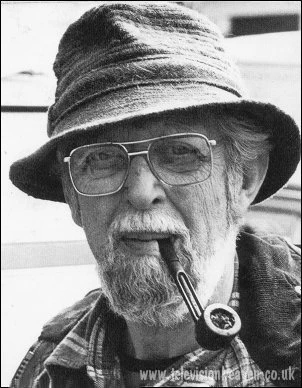
Although released by Network on DVD, the sad demise of that company means that there is now a very limited stock left, although previously owned box-sets may be available on platforms such as eBay.
Those sets included
OUT OF TOWN VOLUME ONE
This volume, running at 875 minutes, contains the 35 editions that remain from 1980/1981 – including the unbroadcast 21st anniversary special and an episode never previously released on DVD
SPECIAL FEATURES:
* Two episodes of Southern Gold
* A Tribute to Jack Hargreaves
* Go! Learning to Fish
* Summer in Kite's Country
OUT OF TOWN VOLUME TWO
This volume, running at 756 minutes, contains the 28 editions made in the mid-1980s which combined original Southern Television film materials alongside brand-new linking material recorded in Jack's famous shed!
SPECIAL FEATURES:
* Living With a Dog
* A Yorkshire Childhood
* The Ocean Racers
* Four LPs that Jack Hargreaves made in the 1970s: Know Your Fish, Know Your Dog, Know Your Pony and Country Walking
FURTHER OUT OF TOWN (BLU-RAY)
When the series ended, Jack saved from destruction many hours' worth of Out of Town film footage. It is this material – much of it unseen for decades - that has been painstakingly restored and revisited to produce six new episodes of Further Out of Town, running at 190 minutes.
EPISODE 1: Garden Pests/Red Squirrels/Country Flowers
EPISODE 2: Planting a Vine/Sheep Fair
EPISODE 3: Southall Market/Fishing in the Hebrides/Peeler Crabs
EPISODE 4: Andalusian Horses with Brassy Searle & Sons
EPISODE 5: Mr Cuckoo/Sea Bream/Stocking a Motorway Lake
EPISODE 6: Butterflies/North Wind Fishing/John Bass Lakes
Alternatively, from February 2024, episodes will be shown every Monday on Talking Pictures TV.
Seen this show? How do you rate it?
Seen this show? How do you rate it?
Published on January 17th, 2019. Laurence Marcus 2008 Updated 2012 with thanks to Ken Robinson CBE. Additional information added in 2024. This article sourced from the following: Wikipedia; 'Out of Town - A Life Relived on Television' by Jack Hargreaves; British Television (Oxford Press); Look-In Annual (various); A Guide to Independent Television (various).




